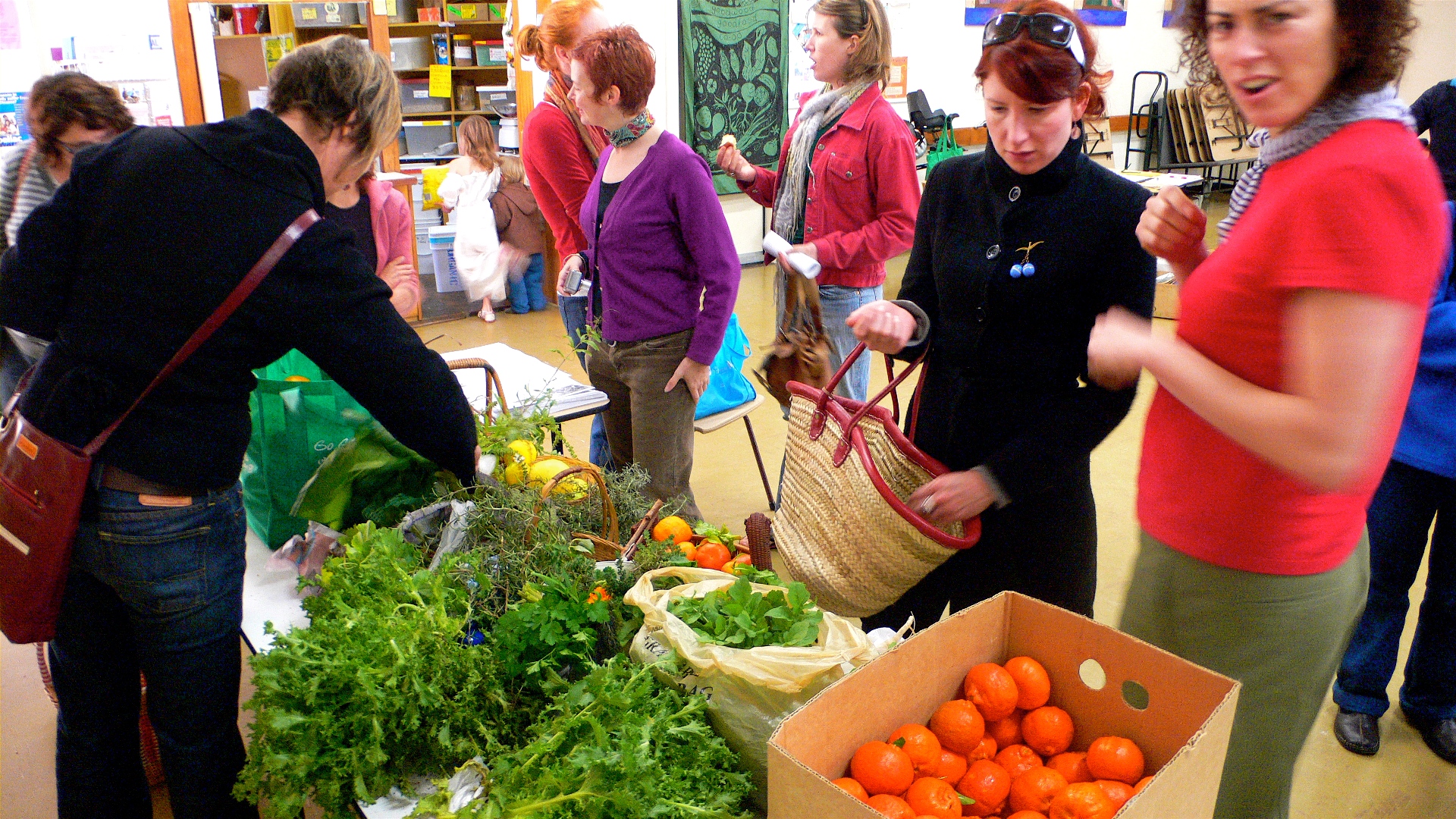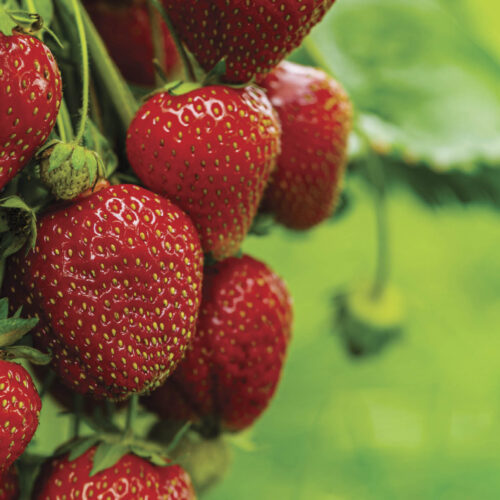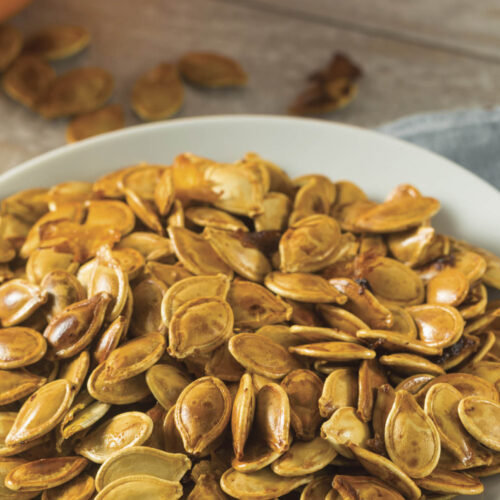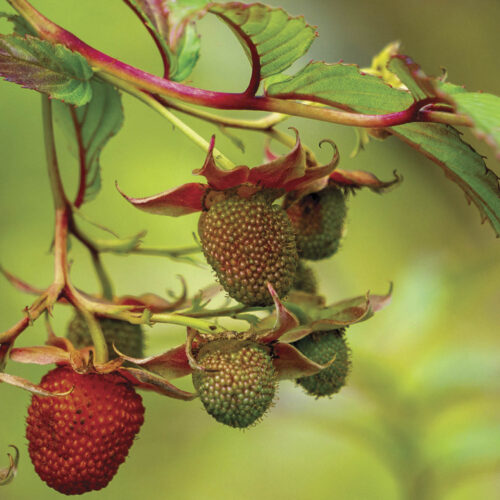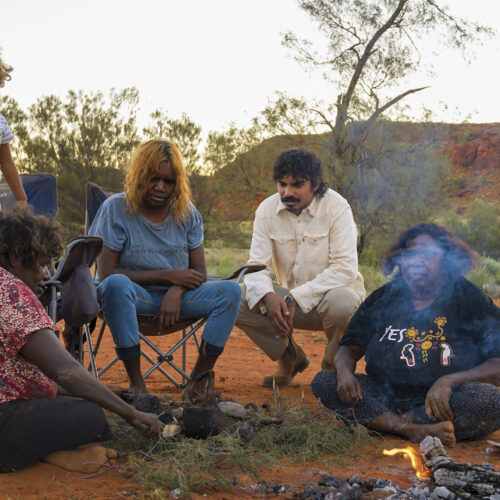Urban Orchid – Catching Falling Fruit
2010-11-08T06:40:58+11:00
Organic gardeners are swapping homegrown produce, ideas and skills in an expanding community movement known as the Urban Orchard. JOEL CATCHLOVE reports on the Adelaide experience and beyond.
Every month in the inner south-western suburbs of Adelaide, neighbours gather around a table of fresh fruit and greens at their local community centre. They come and go with armfuls of fresh produce – yet no money changes hands and the labels on the lemons, figs and bunches of herbs speak more of ‘food metres’ than ‘food miles’. This is an Urban Orchard, the homegrown fruit and vegetable exchange that’s taking root in cities and towns across the country.
The concept is simple: local gardeners and cooks meet to share produce and knowledge. They leave their surplus, and take whatever they can use. Some exchanges run workshops on gardening and preparing food to help build the skills of members. Initially, the idea was to harvest and exchange unwanted fruit but it now encompasses vegies and herbs. Some groups even call themselves ‘urban harvest’ to reflect this.
Inspired by a project of Melbourne’s CERES Community Environment Park, Friends of the Earth Adelaide and the Goodwood Goodfood Co-op held their first Urban Orchard gathering in 2007 at the Clarence Park Community Centre.
As volunteer Narelle Walker says, “When people discover that this organic, hyper-local produce is essentially free, they often respond with disbelief. The informality and honesty-based nature of the Urban Orchard is something we have found cultivates real generosity and commitment to the project.”
Forgotten fruits
From modest beginnings, the Clarence Park Urban Orchard continues to draw an increasing number of local gardeners to share their seasonal surplus. Through winter and spring, the tables are heavy with mandarins, oranges and lemons, supplemented by leafy greens and seedlings for summer planting. As the dry Adelaide summer bears down, the exchange approaches its annual crescendo, with the leafy staples joined by boxes of apricots, plums, grapes and figs. Throughout the year, the exchange hosts fruit like feijoas, prickly pears, sapotes, quinces and pomegranates that thrive in South Australian backyards, yet are rarely seen on grocers’ shelves.
As the organisers explain, one motivation for starting an Urban Orchard was to cut food waste and transport by simply utilising the abundance already present in many backyards. The tragedy of fallen fruit has inspired many participants to approach neighbours about harvesting their neglected orange trees in exchange for jars of marmalade, and gleaned or wild foods gathered from vacant lots, guerrilla gardens or forgotten creek banks make a regular appearance on the exchange table.
It’s not just luscious fruit and produce that participants exchange, however; they also swap knowledge and skills about the cultivation and consumption of foods that thrive in Adelaide’s dry summers and mild winters. Seasonal abundance has become fodder for workshops, with participants meeting at a community kitchen to preserve lemons, or to turn bags full of apricots into jam. As the project has grown, even more unexpected outcomes have emerged, with elderly gardeners approaching the project to maintain their gardens in exchange for a share of the harvest.
With recent media attention on the Urban Orchard concept, including a segment on ABC television’s X Stateline X, and supported by a “how-to” guide to starting your own, the movement continues to grow. Easily adaptable to meet local needs, homegrown produce exchanges now meet regularly in local parks, community gardens and neighbourhood markets across Adelaide, Melbourne and beyond, cultivating community through conversation and cumquats.
• For more information on Adelaide Urban Orchards, including starting your own, visit: www.adelaide.foe.org.au, phone: 0403 886 951.
From little seeds…
The first Urban Orchard homegrown produce exchange was held at Melbourne’s CERES Community Environment Park. From its beginnings with 35 swappers, their Urban Orchard now brings together participants from over 170 households to trade neighbourhood-grown produce, preserves and compost. As the CERES Urban Orchard’s Jonny Apple says: “We meet a lot of very productive gardeners. They make jams, chutneys and cakes and give produce to all their friends and still find they have surplus. That’s when they come to us!”
With its commitment to building community through local food growing and sharing, prospective urban orchardists are encouraged to draw from the model to start an exchange in their own communities, rather than travel long distances to participate in existing projects.
Indeed, as the organisers emphasise, there’s nothing new about sharing the backyard bounty with neighbours. In this spirit, there are now nine similar community harvest exchange projects across Victoria, with swaps also in Wollongong, Brisbane, and Adelaide.
In Melbourne there are also plans to establish a network of fruit-picking volunteers to harvest the gardens of gardeners who are unable to do so themselves.
• For details on an Urban Orchard near you (in Victoria or South Australia so far), visit www.ceres.org.au/node/114; Phone: (03) 9387 2609.
• North Wollongong (NSW), Community Garden, Ajax Avenue (at the back of the PCYC facility, 4th Sat of the Month.
• Brighton (QLD) Apex Park, corner of Queens Parade and Gladstone Street, first Sunday of the month, 9.30am, phone (07) 3269 9484
A good exchange |
| • Utilise otherwise wasted fruit, vegetables, herbs and seeds |
| • Create networks within the neighbourhood and build stronger local communities? |
| • Reduce green waste and pressure on landfill? |
| • Provide healthy, seasonal food for the community |
| • Share valuable skills, from pruning to preserving |
| • Reduce the need to transport produce from outside the city, state or country. |

